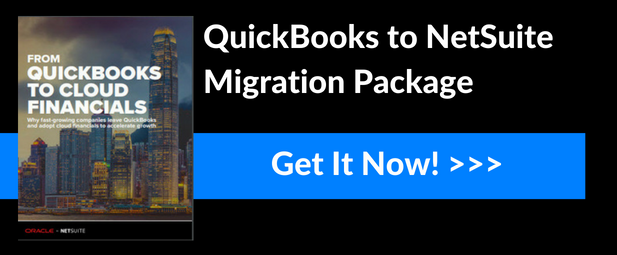Last Modified: August 12th, 2021
3 min read
QuickBooks can be a great fit for many small businesses just starting out, but before long, emerging companies experience limitations related to Quickbooks capabilities which may stifle growth and delay strategic initiatives . If you’re reading this I suspect that your current situation isn’t ideal but are you ready to take the next step to evaluate whether a fully cloud-based ERP system might be right for you?
If you are considering a QuickBooks alternative for your growing business, the following themes may be painfully familiar:
- Loads of manual data entry and spreadsheet management
- Data inaccuracies due to lack of automation/syncing capabilities
- Delays in data or reporting due to disparate databases
- Financial reporting limitations (e.g. financial consolidations and dynamic segment level reporting by legal entity)
Does any of this ring true with you? If so, you are not alone. Many emerging startups and small businesses find that while QuickBooks was sufficient on day one, it presents limitations as the company grows and matures. The question is…what’s next?
Is your business ready for an ERP?
As you consider your next steps and the possibilities with a QuickBooks alternative, you might wonder whether your company is at the stage where an an ERP system makes sense both financially and organizationally. In other words, “Are we big enough? Are we really ready?”
Here are a few signs that your company is well-positioned to utilize an ERP like NetSuite:
#1: Accounting is more complex than it needs to be.
There are two main areas where accounting inefficiencies could be alleviated with the help of an ERP system: financial management and reporting.
When it comes to managing accounting tasks, there tends to be a lot of manual work involved in using QuickBooks. Furthermore, if you are unable to conduct certain activities, such as running consolidated financial reports, creating a supply chain forecast or create customizations for your business model there’s a good chance it is time for an upgrade.
On the reporting side, access to your financial performance should be available at your fingertips, in real time. If your reporting takes a significant amount of time and effort, or requires reconciling multiple spreadsheets and systems, you can do better.
#2: You are on software overload.
If there is a separate software product, database, and process for each area of the business, such as accounting, sales, marketing, inventory management, project management, HR/payroll, etc; you may be wasting time on delayed processing (after all, these systems all need to talk to each other) and your employees could be road blocked by these inefficiencies.
The core issue here is that data is located in various systems across the business and that data is required to work together in order to result in the business operating at its full capacity. When data is not centralized, this leads to all sorts of issues across the organization from delays in receiving information, inaccurate data, and inefficient processes.
#3: Customer satisfaction is taking a hit.
There is no debate that the best businesses are those with happy customers. One of the most important ways to keep customers happy is to give them what they need, when they need it – in other words manage inventory and order fulfillment well.
Of course, for growing companies, this is often a challenge. When a company is failing at inventory management and order fulfillment, it is often the result of data being located in disparate systems, as mentioned above. The bad news is that this can lead to both customer and employee frustration when order status is not easily trackable. It can also create sales delays and payment delays, which impacts the bottom line.
Today’s most customer-oriented companies understand the link between technology and customer satisfaction. Choosing a QuickBooks alternative that allows you to tightly manage inventory and order fulfillment will help you keep your customer-centric reputation in tact as you grow.
The Benefits of Implementing an ERP for your Small Business
- Automation of accounting tasks that currently require manual input.
- At a glance financial reporting in real-time.
- Streamlined processes across the entire company, leading to increases in efficiency and better use of your staffs’ time.
- Better and faster decision making capability as a result of accurate, up-to-date information.
- Tightly-managed inventory and order fulfillment through a central database allows for customer needs to be consistently met.
- Instant scalability as the business grows and needs evolve.
Have you noticed any of the scenarios above taking place at your company? If so, you could benefit from exploring a QuickBooks alternative such as NetSuite. Check out this guide on identifying the right ERP system for your firm.
Did you find any outdated reference or broken content?
This is an older page and may contain outdated contents or references. We are currently working to update and fix these old pages but would appreciate a little help. Please let us know if you find anything that requires our immediate action.
Serge is a Managing Partner and the head of sales and business development.
Published on: May 15, 2018

